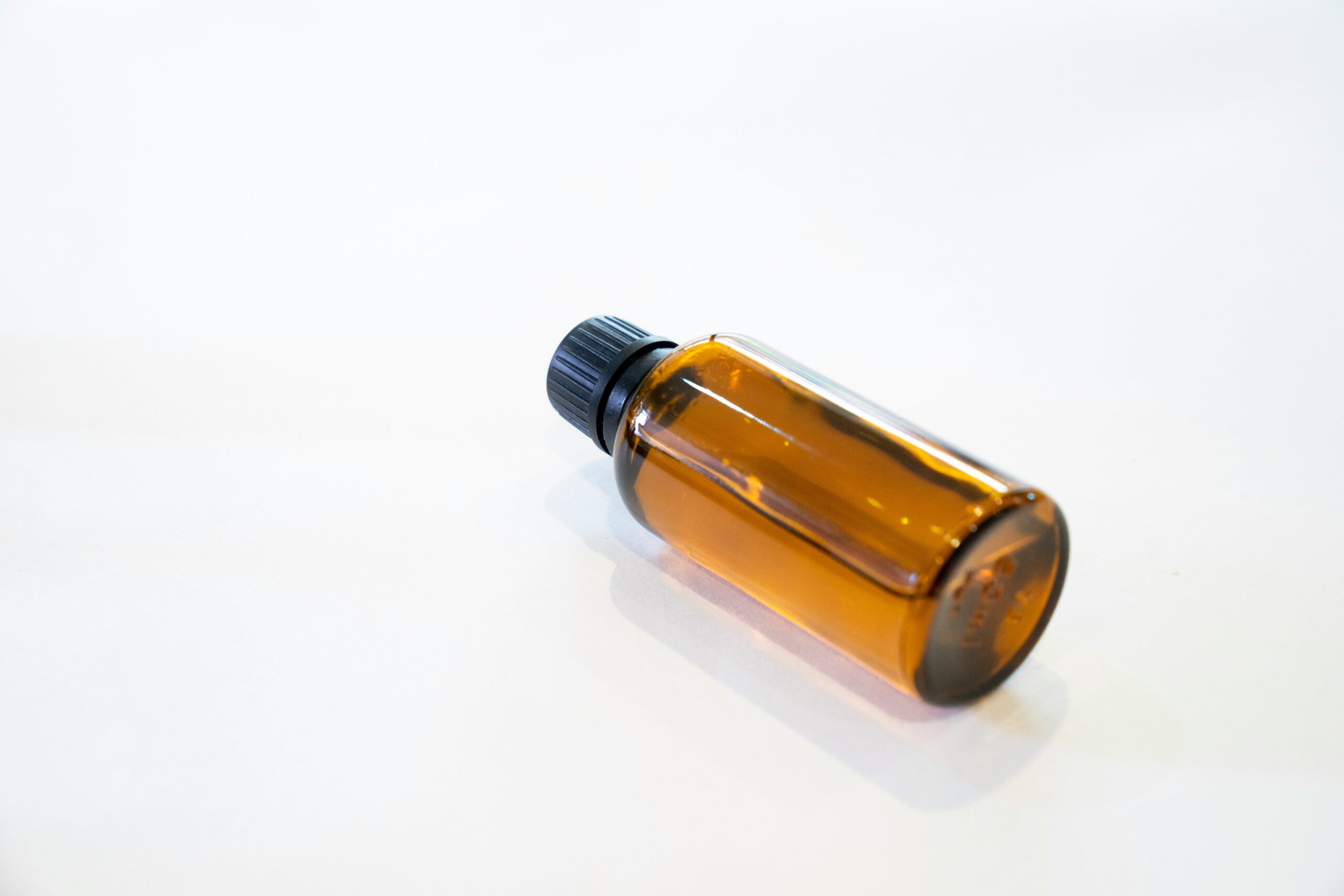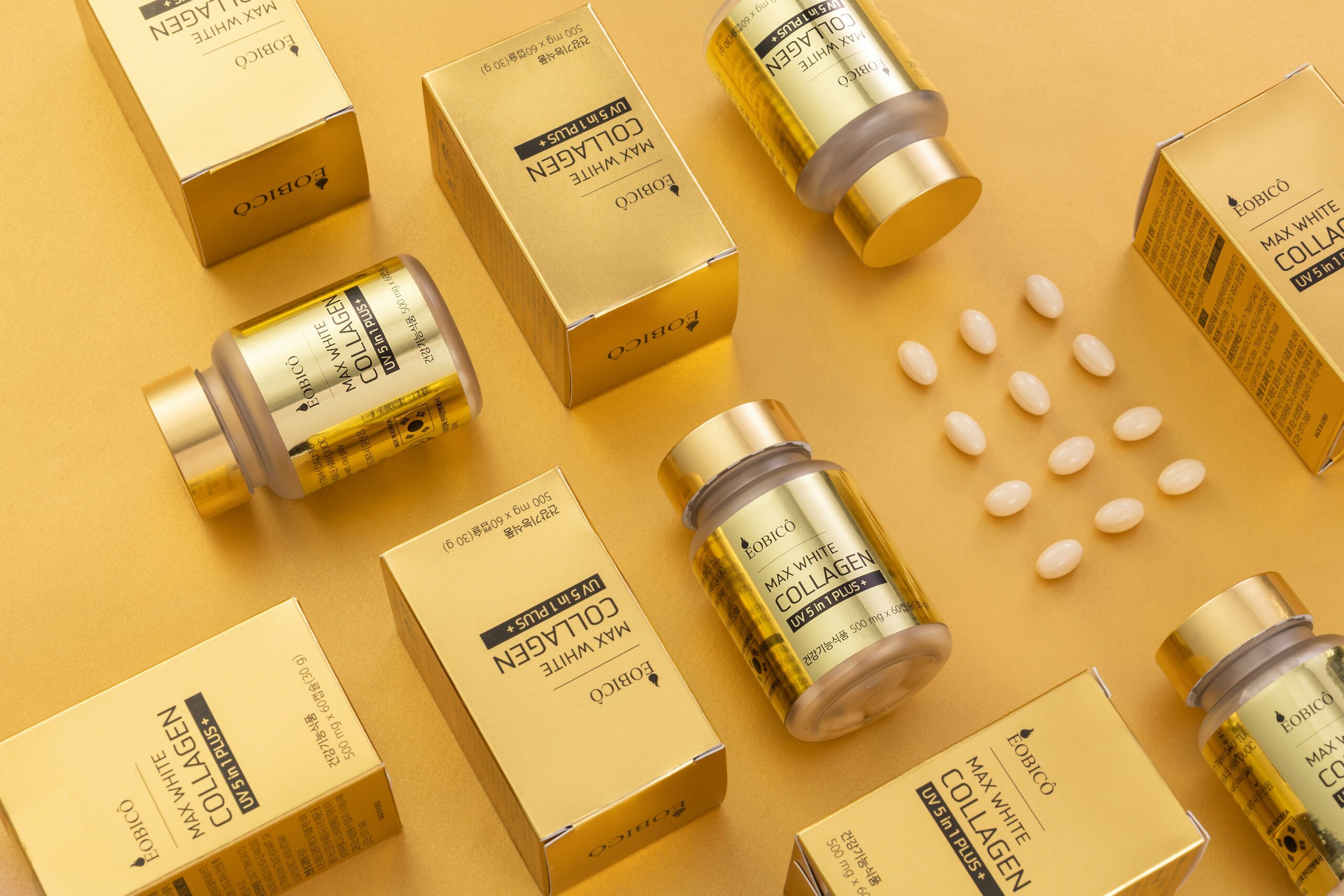Collagen is a substance, specifically a protein, found in the human body. Above all, natural protein has essential functions as a building block for many body areas. However, the properties of collagen mean that the substance is also used in the cosmetic and pharmaceutical industries.
The human body's ability to produce this protein decreases as we age. This natural process can cause side effects. Collagen deficiencies cause various symptoms. Therefore, collagen can also be supplemented to make up for deficiencies. This minimizes side effects, as the substance, among other things, binds water in tissues and is involved in blood clotting and regenerative processes.

Sources of collagen are food products, which are also used in the diet to minimize component deficiencies. Collagen also produces various items in the medical industry and beyond. Collagen is, therefore, a precious substance for human health. However, excessive collagen in the body can also cause adverse effects. It is essential to have a medical consultation before starting supplementation and to adhere to the recommended collagen doses. In addition to this, contraindications for taking collagen products should also be kept in mind.
Collagen forms diverse structures. Collagen is made up of three chains, creating a tight configuration. The protein molecules that makeup collagen are made up of amino acids![]() . Collagen fibers are resistant to stretching. Because of collagen's stiffness, it provides the building blocks that protect connective tissues. There are many types of collagen, but only one type makes up most of the human body. The production of collagen in the body takes place in fibroblast cells
. Collagen fibers are resistant to stretching. Because of collagen's stiffness, it provides the building blocks that protect connective tissues. There are many types of collagen, but only one type makes up most of the human body. The production of collagen in the body takes place in fibroblast cells![]() .
.
Synthesis of the component is carried out intracellularly and extracellularly. The structural protein is found in the skin, tendons, and bones. Increased knowledge of collagen helps to benefit from its helpful properties. The collagen produced in the body and the collagen products supplied are essential for overall health. As such, collagen is sometimes used to treat a variety of conditions. The health benefits of collagen include:

Collagen is a component of tissues and organs, being a link in biological structures. This means that it provides mechanical support and directs tissue development. Collagen influences the condition of skin, bones, mucous membranes, and organs. It acts as a scaffold to stabilize the structure of the dermis. Collagen is also a component of bones and tendons. The ingredient improves muscle strength and significantly increases muscle mass, vital for physically active people. Collagen is also an excellent therapeutic option for joint disease![]() .
.
Collagen helps with many health problems thanks to its regenerative properties. Among other things, collagen influences the regeneration of skin and bone loss. Aging causes a reduction in the number of fibroblasts that synthesize collagen, resulting in a decrease in skin quality. Through the multiplication of fibroblasts, collagen improves skin condition and reduces wrinkles. In addition, collagen membranes can enhance bone regeneration at the loss site.
Collagen is also used for dental purposes. For example, the substance is used for inflammation in periodontal regeneration procedures. Another significant benefit of collagen is its effect on wound healing![]() . The substance has long been used in wound treatment as a dressing material.
. The substance has long been used in wound treatment as a dressing material.
Collagen is used primarily to improve the condition of the skin. The substance not only reduces the signs of aging but also has the ability to bind water, keeping the skin moisturized. Collagen keeps the skin supple and moisturized. It also moisturizes the joints, which delays their degeneration process. The substance can prevent stiffening of tendons and ligaments, reducing the risk of swelling.
Collagen is not only used as a dietary supplement or cosmetic. The substance is also used in the production of many functional items. Collagen is a valuable biomaterial because it has low immunogenicity and biocompatible properties. It is used to produce pharmaceutical products, such as dressings because collagen helps maintain a moist environment in the wound. Collagen is a valuable material used in tissue engineering![]() and surgery. Dental composites and biodegradable matrices are made from collagen, among other materials. In the food industry, collagen also plays a vital role due to its high protein content and ability to absorb water.
and surgery. Dental composites and biodegradable matrices are made from collagen, among other materials. In the food industry, collagen also plays a vital role due to its high protein content and ability to absorb water.

Collagen not only protects organs but also influences their proper functioning. The substance helps to control blood pressure, which is essential in circulatory diseases. In addition, collagen relaxes blood vessels, dilates arteries, and allows their walls to be cleaned. Collagen ensures the proper structure of the arteries that carry blood from the heart to the rest of the body. In this way, the ingredient contributes to improved circulation and reduces the risk of atherosclerosis, among other things.
Collagen also influences the digestive process. The substance supports the regeneration of damaged cell walls. In addition, collagen supplies the body with healing amino acids, which are essential in treating many digestive system diseases. Collagen helps to treat gastro-oesophageal reflux![]() . Studies in patients with GERD who were given collagen showed objective evidence of reduced reflux.
. Studies in patients with GERD who were given collagen showed objective evidence of reduced reflux.
Another essential function of collagen is metabolic support. Collagen enables the conversion of glucose into energy. Thanks to its amino acid content, collagen supplementation can influence blood glucose regulation and thus help to counteract diabetes and insulin resistance. The substance stimulates metabolic processes and also promotes weight loss. Collagen helps appropriately manage excess fat and sugars.
Collagen is a substance produced by the human body, but people can also use it as an essential element in food products. By taking care of products with collagen in the diet, we can benefit from its health properties and avoid deficiencies. Collagen peptides benefit the diet by having essential amino acids and bioactive properties. Sources of collagen include the following foods:

The primary sources of collagen are meat and meat-based products. Meat types such as beef, pork, veal, and lamb contain the most collagen. The game also has large amounts of collagen. Poultry provides collagen protein in smaller amounts, but poultry products such as chicken feet![]() have an exceptionally high amount. Collagen is most often obtained from natural animal sources. This ingredient is also used as a food additive to improve the properties and quality of meat products.
have an exceptionally high amount. Collagen is most often obtained from natural animal sources. This ingredient is also used as a food additive to improve the properties and quality of meat products.
Seafood is another source of collagen in food products. Seafood contains large amounts of collagen peptides. Seafoods with collagen include octopus and prawns, among others. Various types of fish also contain collagen. However, marine protein's mechanical strength is lower than meat's collagen. On the other hand, the advantages of the marine-sourced component relate to higher absorption, high collagen fiber content, and low immunogenicity.
Gelatine-based jellies are products of animal origin that have collagen. Gelatine![]() is primarily found in jellies, jelly, and stock cubes. Collagen can also be found in other products, as it is added to foods and drinks. Collagen proteins are used in juices and soups to improve their value.
is primarily found in jellies, jelly, and stock cubes. Collagen can also be found in other products, as it is added to foods and drinks. Collagen proteins are used in juices and soups to improve their value.
In addition to natural sources of collagen, when wishing to increase the amount of this ingredient in the body, it is also worth providing products in the diet that affect collagen synthesis. The human body naturally produces collagen, but as we age, this ability weakens, and deficiencies can occur. Therefore, including products in the diet is essential to increase collagen production.
Such foods include citrus fruits![]() , nuts
, nuts![]() , and some green vegetables. These products contain various nutrients, such as zinc and copper, for proper collagen synthesis. Increasing collagen in the body is also essential for those on a vegan diet, as natural sources of collagen only include animal products.
, and some green vegetables. These products contain various nutrients, such as zinc and copper, for proper collagen synthesis. Increasing collagen in the body is also essential for those on a vegan diet, as natural sources of collagen only include animal products.

The amounts of collagen supplied externally can vary according to need. Collagen is used for a variety of ailments. The desired health benefits may require different doses of collagen protein. The delivery of collagen can also be done in various ways. However, considering the dietary intake of collagen, it is recommended to provide this ingredient in the range of 2.5 to 15 g per day.
However, when supplementing with collagen hydrolysate, the ingredient should be taken in doses ranging from 2.5 g to 10 g![]() daily. Taking the doses will help to achieve the desired effects and compensate for collagen deficiencies. However, it is essential to remember that collagen supplementation is worth consulting your doctor before starting.
daily. Taking the doses will help to achieve the desired effects and compensate for collagen deficiencies. However, it is essential to remember that collagen supplementation is worth consulting your doctor before starting.
Collagen deficiencies can cause symptoms. Too little collagen in the body mainly affects seniors. The ability to produce collagen decreases after the age of thirty. The natural aging process is evident, with symptoms most often affecting the skin. Also, various diseases can be closely linked to collagen deficiency. The effects of collagen deficiency include:

Skin, hair, and nails need adequate amounts of collagen. Too little of this component can lead to insufficient hydration of the skin, reduced elasticity, and wrinkle formation. The skin is also more exposed to the external environment. In addition, hair is thin, brittle, and lacks shine.
Collagen is a building block of many body areas and influences the correct functioning and protection of the organs. Thus, a deficiency of this component can cause impaired heart or digestive system function when collagen is lacking and blood and lymphatic vessels, among others, function.
Collagen is an essential component of tendons, muscles, and bones. If there is a collagen deficiency, these body parts can become weakened. If there is too little collagen, joint cartilage deteriorates, pain and movement difficulties occur, and the risk of fractures increases.
Collagen is an essential component that the body produces. It can be taken in the diet or supplemented. Collagen is also used for medical purposes. The ingredient is used to treat a variety of health problems. Collagen-based products have a broad spectrum of applications. Collagen has a proven high level of safety. Collagen-based medicines can increase the absorption of essential ingredients.
Collagen is also used in the manufacture of eye lenses. Thanks to this ingredient's content, collagen coatings gradually dissolve into the cornea when applied to the eye's surface. Collagen protein is also essential to various dressings for severe burns, wounds, and ulcers. Collagen-based scaffolds are also a common therapeutic target in bone regeneration.

Collagen is also a popular cosmetic ingredient. As this element significantly affects the skin, many topical creams and masks contain collagen. When combined with other ingredients (hyaluronic acid![]() ), collagen can produce the desired results. However, these cosmetics have a limited ability to penetrate the skin. Collagen does not penetrate the deeper layers of the skin, so injectable collagen fillers are more effective in reducing wrinkles and improving elasticity.
), collagen can produce the desired results. However, these cosmetics have a limited ability to penetrate the skin. Collagen does not penetrate the deeper layers of the skin, so injectable collagen fillers are more effective in reducing wrinkles and improving elasticity.
Collagen is recognized as a potentially safe ingredient without a high risk of side effects. However, like any other chemical compound, it can cause adverse health effects if misused. Collagen or products containing collagen can cause allergic reactions. In addition, natural animal sources of collagen have a risk of transmitting diseases such as BSE![]() in cattle. However, in most people, collagen supplements are well tolerated.
in cattle. However, in most people, collagen supplements are well tolerated.
Collagen is an ingredient with many benefits. It is naturally produced in the human body and has essential functions. However, the aging process can cause collagen deficiencies. In such situations, increasing collagen through diet or supplementation is helpful. Collagen has several health benefits that prevent various diseases. The ingredient also produces different food products, cosmetics, and medical items. Collagen is highly safe, but caution is recommended when using collagen products due to possible allergies.